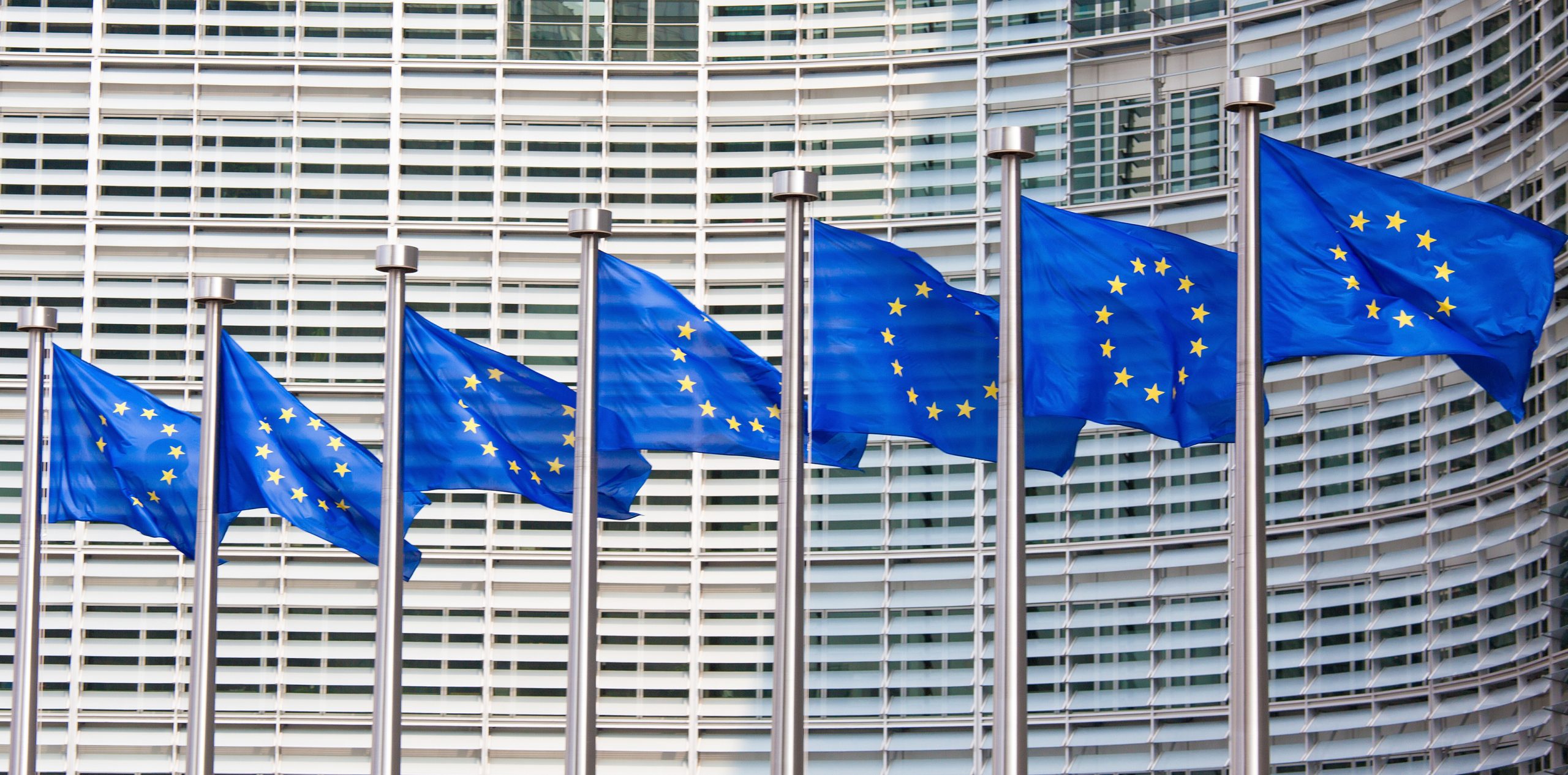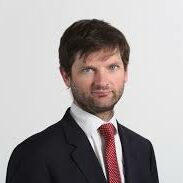“The judge said it was accepted that DABUS is not a person (natural or legal) and cannot make an application for a patent. Only a person can be granted a patent, and the 1977 Patents Act did not envisage an inventor being a non-person.”
It’s the time of year to reflect upon the cases and trends that have shaped IP over the past 12 months. Here are our picks for the top five in patents from Europe.
1) Unified Patent Court—On, Off and On Again
 It’s been a year of ups and downs for the EU’s attempt to create a Unitary Project and Unified Patent Court. (UPC) In March, Germany’s Federal Constitutional Court said that the Act of Approval of the UPC Agreement in the country was void as not enough members were present at the vote. Following the UK government’s decision that it would withdraw from the project, the Court’s decision was seen as potentially a terminal blow.
It’s been a year of ups and downs for the EU’s attempt to create a Unitary Project and Unified Patent Court. (UPC) In March, Germany’s Federal Constitutional Court said that the Act of Approval of the UPC Agreement in the country was void as not enough members were present at the vote. Following the UK government’s decision that it would withdraw from the project, the Court’s decision was seen as potentially a terminal blow.
However, in November the Bundestag voted in favor of the Agreement by a two-thirds majority. The bill is due to be presented to the Bundesrat on December 18, 2020 where it will likely also be passed. That would pave the way for Germany to ratify the Agreement, although a further constitutional challenge cannot be ruled out.
The UPC Preparatory Committee met virtually in September—its first meeting since March 2017. The Committee noted the continuing enthusiasm for the UPC from European industry and stated: “Good progress was made and the Committee is confident that pragmatic and legally sound solutions will be found that will enable the unitary patent system to be functional in a near future.”
2) UK Supreme Court rules on FRAND
In a much-watched decision in August, the UK Supreme Court upheld lower judgments that English courts can determine fair, reasonable and non-discriminatory (FRAND) terms for worldwide patent licenses, and grant injunctions. The judgments came in cases between (1) Unwired Planet and Huawei and (2) Conversant and ZTE, in disputes concerning standard essential patents (SEPs) in the telecoms industry. The Court addressed issues including jurisdiction, suitable forum, non-discrimination, competition law and the appropriateness of an injunction.
The decision was seen as affirming the UK as a popular forum for patent owners to bring cases over SEPs. There have been several telecoms cases involving high-profile litigants in the four months since the judgment. These have addressed a wide range of issues including essentiality (Optis Cellular v Apple), calculation of damages (IPCom v HTC), and disclosure of third-party agreements (Oneplus v Mitsubishi).
3) Pepper Patents
In its opinion in Case G 3/19 “Pepper” published in May, the Enlarged Board of Appeal (EBA) of the European Patent Office held that plants and animals exclusively obtained by means of an essentially biological process are excluded from patentability. The opinion, which arose from a referral from the EPO President, also set out principles regarding the interpretation of the European Patent Convention (EPC) that could apply in other technical fields.
The case addressed questions arising from Rule 28(2), a new paragraph introduced into the Implementing Regulations by the EPO’s Administrative Council, which came into force on July 1, 2017. It states: “Under Article 53(b), European patents shall not be granted in respect of plants or animals exclusively obtained by means of an essentially biological process” (emphasis added). Rule 28(2) was adopted to align the EPC with the EU Biotech Directive.
4) Can AI Be an Inventor?
The EPO and UKIPO have both refused to accept patent applications naming an artificial intelligence machine called DABUS as the inventor. In a decision in September, a High Court judge upheld the UK IPO’s refusal. Mr. Justice Marcus Smith rejected all the arguments filed by the applicant, Dr. Thaler.
The judge said it was accepted that DABUS is not a person (natural or legal) and cannot make an application for a patent. Only a person can be granted a patent, and the 1977 Patents Act did not envisage an inventor being a non-person. While DABUS may have been capable of an inventive concept, it cannot be named as the inventor. Nor can it transfer the rights to the invention to the applicant.
The patent applications have been filed in many jurisdictions, and further decisions are expected. Meanwhile, patent offices are leading the debate on some of the policy issues that they raise. For example, WIPO is running a series of Conversations on IP and AI; the EPO is holding a virtual conference titled The Role of Patents in an AI-Driven World on December 17-18 this year; and the UK IPO ran a consultation on AI and IP in the fall.
5) Connected Cars Heading to CJEU
In one of multiple disputes between telecoms patent owners and automobile manufacturers, the Düsseldorf Regional Court submitted questions to the Court of Justice of the European Union in November. The questions concern the licensing of SEPs, and in particular which entity in the supply chain should take a license. EU Commission Vice President Margrethe Vestager was reported as saying: “It’s a welcome development that the European courts will pronounce on these very tricky questions … we have tricky cases exactly in this area.”
As patent law is not harmonized in the EU, the CJEU rarely issues judgments in patent cases. However, it does rule on issues involving abuse of a dominant position under Article 102 TFEU when they concern patents. In 2015, it issued an important judgment regarding SEPs in Huawei v ZTE (Case C-170/13).
The Düsseldorf case is one of many brought by owners of SEPs such as Nokia and Conversant against automotive companies, including Daimler, Continental, Robert Bosch and TomTom, regarding 4G and other telecoms standards. Other manufacturers, such as Audi and BMW, have licensed the patents via the Avanci platform. In one decision in August, the Mannheim Regional Court found in favor of Nokia and said the Finnish company could apply for an injunction, subject to posting a €7 billion bond. Daimler said it would appeal the decision.
The outcome of these cases is likely to have an impact throughout the auto industry, and on the Internet of Things generally.
In a separate piece we will review the top EU developments in other areas of IP.

![[IPWatchdog Logo]](https://ipwatchdog.com/wp-content/themes/IPWatchdog%20-%202023/assets/images/temp/logo-small@2x.png)

![[Advertisement]](https://ipwatchdog.com/wp-content/uploads/2024/04/Patent-Litigation-Masters-2024-sidebar-early-bird-ends-Apr-21-last-chance-700x500-1.jpg)

![[Advertisement]](https://ipwatchdog.com/wp-content/uploads/2021/12/WEBINAR-336-x-280-px.png)
![[Advertisement]](https://ipwatchdog.com/wp-content/uploads/2021/12/2021-Patent-Practice-on-Demand-recorded-Feb-2021-336-x-280.jpg)
![[Advertisement]](https://ipwatchdog.com/wp-content/uploads/2021/12/Ad-4-The-Invent-Patent-System™.png)







Join the Discussion
3 comments so far.
MaxDrei
December 24, 2020 05:12 amGive us a clue, will you, US patent agent. Could you be alluding to the efforts in Europe, ongoing since 1973, to provide not only a supra-national European Patent Office but also a supra-national Patent Court?
A few weeks ago, the (very heavily lobbied) German Parliament surprisingly ratified the Unified Patent Court Convention. Some prominent patent litigators think they can get the system up and running next year. But two complaints about the UPC usurping Europe’s Rule of Law have just been filed at the German national Constitutional Court and the Court of Justice of the EU has yet to speak on the issue. Keep watching this space. The project might take another 40 years or so to come to fruition.
US Patent Agent
December 22, 2020 07:39 pmWhat about potential shift in injunctions in Germany? I am NOT licensed in DE — like most readers on this blog, I am a Yank. If memory serves me, weakening injunctions in Germany was ON and then OFF and then ON ?? [please clarify]
I would think that the likelihood of obtaining a German injunction influences the value of European patents at least as much, if not more than the 5 items listed above.
MaxDrei
December 22, 2020 12:29 pmJames at # 6 I would cite the arrival of a harmonised European level DoE, thanks to the Lilly claim directed explicitly to pemetrexed disodium, litigated all over Europe, and uniformly (no exceptions) found by the appeal courts of a slew of jurisdictions in Europe (including the UK Supreme Court) to be infringed by a pemetrexed dipotassium product. Not often, that “sodium” means “potassium” is it?
Europe’s DoE is, for me, the corrective and counterpart to the EPO’s extremely strict jurisprudence on prosecution amendments. It is of course also the manifestation of the mandatory Protocol on the Interpretation of Art 69, EPC. That’s the one that commands all infringement courts to deliver a “fair” scope of protection to the patent owner.